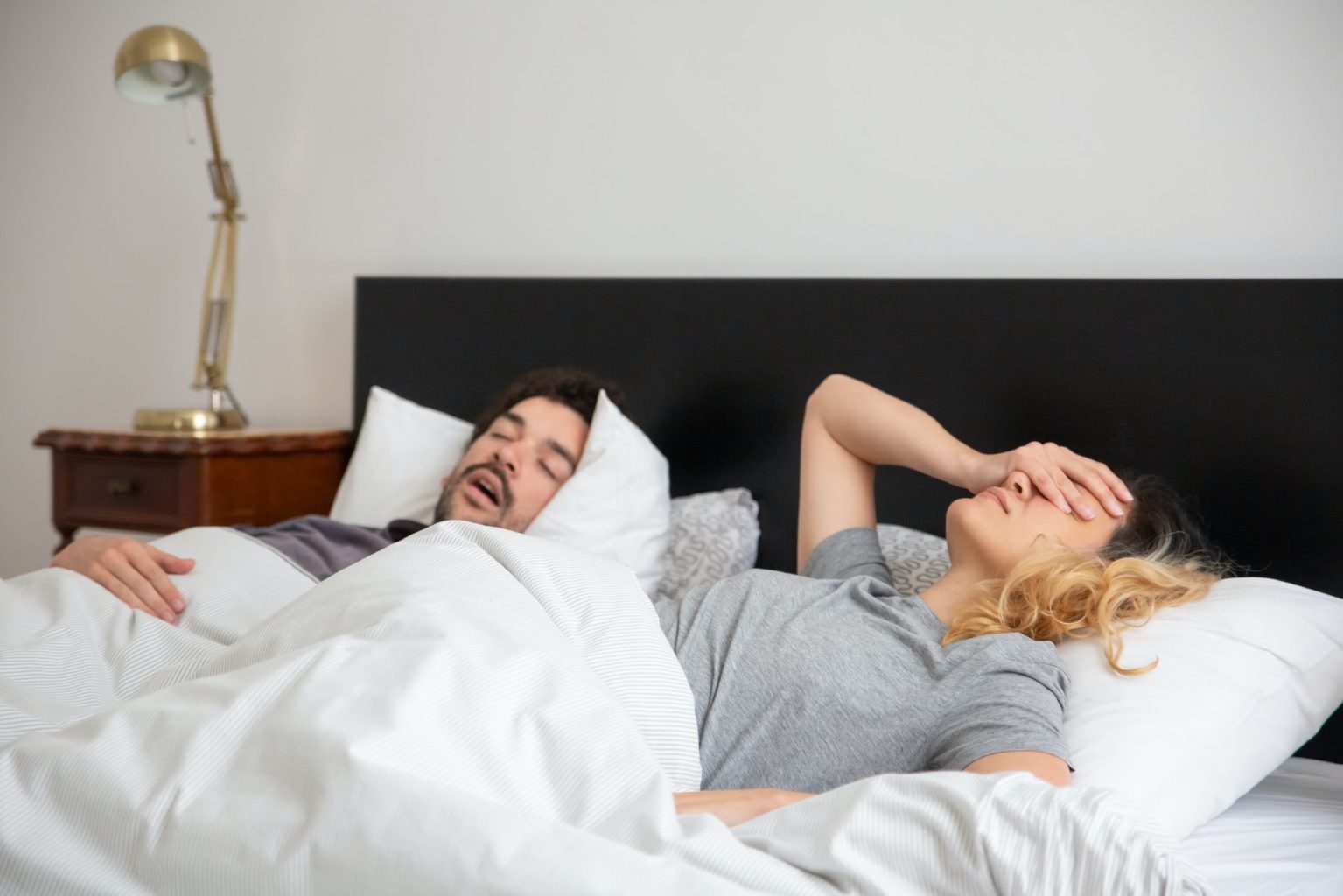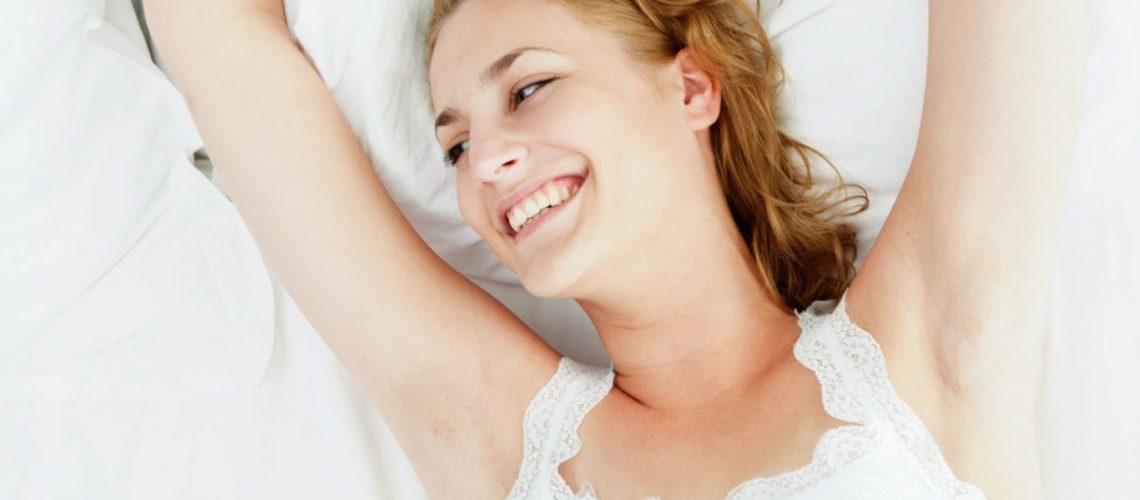If you wake up with sore jaws in the morning, it’s very possible that you’re grinding your teeth at night. While most people who grind their teeth are unaware that they’re doing it, there are a few ways to find out if you do, as well as, prevent it from damaging your teeth. Let’s take a look at what your teeth have to do with sore jaws and solutions to the problem.
Do You Grind Your Teeth?
If you grind your teeth, you may have an idea that you’re doing it or you may not. While the action of grinding your teeth at night is involuntary, the symptoms may cause you to wake up feeling tired, painful, and worried.
Here are a few different ways you can confirm if you grind your teeth or not:
- Ask a friend – If you have a significant other, sibling, or roommate you share a room with, you can ask them to monitor you and let you know if you have been grinding your teeth.

- Observe yourself – Most people who grind their teeth wake up with teeth grinding headaches and sore jaws in the morning.
- Flattened teeth – Over time, grinding your teeth can lead to flattened cusps on your canines, followed by flat rear teeth with pits. These pits can trap small seeds or other food in the mouth.
- Chipped teeth – Grinding teeth at night can lead to chipped teeth, especially chipped front teeth.
- Tooth sensitivity – Teeth grinding can also lead to tooth sensitivity, which is especially noticeable when no other cavities or causes are present.
- Worn out retainers – If you wear retainers during bedtime and you notice scratches on them, this may be a result of teeth grinding.
Common Causes
Let’s take a look at a few of the most common causes for grinding teeth at night:
- Stress – If you’re going through a major change in life or operating on burnt fumes, this may be the cause of your teeth grinding and teeth grinding headaches. As much as possible, try to completely relax and unwind before bed. Take a bubble bath, read a book, meditate, pray, or do whatever you need to release the tensions of the day. Try not to think about the potential stress of tomorrow. Focus on releasing the current stress of today and giving your body, mind, and soul a chance to refuel and recharge.
- Daytime clenching – Sometimes clenching your teeth and jaw during the day can also mean that you grind your teeth at night.
- Poor quality sleep – Sleeping should be restful and rejuvenating. If you suffer from poor quality sleep and severe snoring, you may grind your teeth. In the case of daytime clenching, snoring, and sleep that is not restful, you may be suffering from a bigger issue like sleep apnea.
Solutions
There is no need to continue to suffer from teeth grinding headaches and other uncomfortable symptoms of grinding teeth at night, there are solutions. Let’s take a look at some of the tips you can try to resolve the problem:
- Lowering stress levels – We know lowering stress levels may be easier said than done. However, if you take just a few small steps a day, it will eventually add up. You can try lowering stress levels by going to bed at a decent time, eating nutritious foods, and knowing when it’s time to check out from the world. Another great way to reduce your stress level is to set healthy boundaries and know when it’s time to disengage yourself from work, conversations, or anything that may be considered exhausting. Always put your health and wellness first.

- Warm compress – Grinding teeth at night and teeth grinding headaches directly affect the jaw. Place a soothing warm compress on your jaw to relax your muscles before bed.
- Muscle relaxers – Using muscle relaxers can help you to get relief from teeth grinding. However, it is important to note that using muscle relaxers is a temporary fix, not a permanent one.
- Custom nightguard – Visit your dentist to get fitted for a custom nightguard. While over-the-counter nightguards are not effective in preventing long-term damage, they may help you get used to sleeping with a nightguard. However, a custom nightguard is always best. Your dentist will ensure your nightguard is the perfect fit for long-term use and will safely help you to cope with grinding teeth at night.
Give us a call to book your appointment and get fitted for your custom nightguard today!






